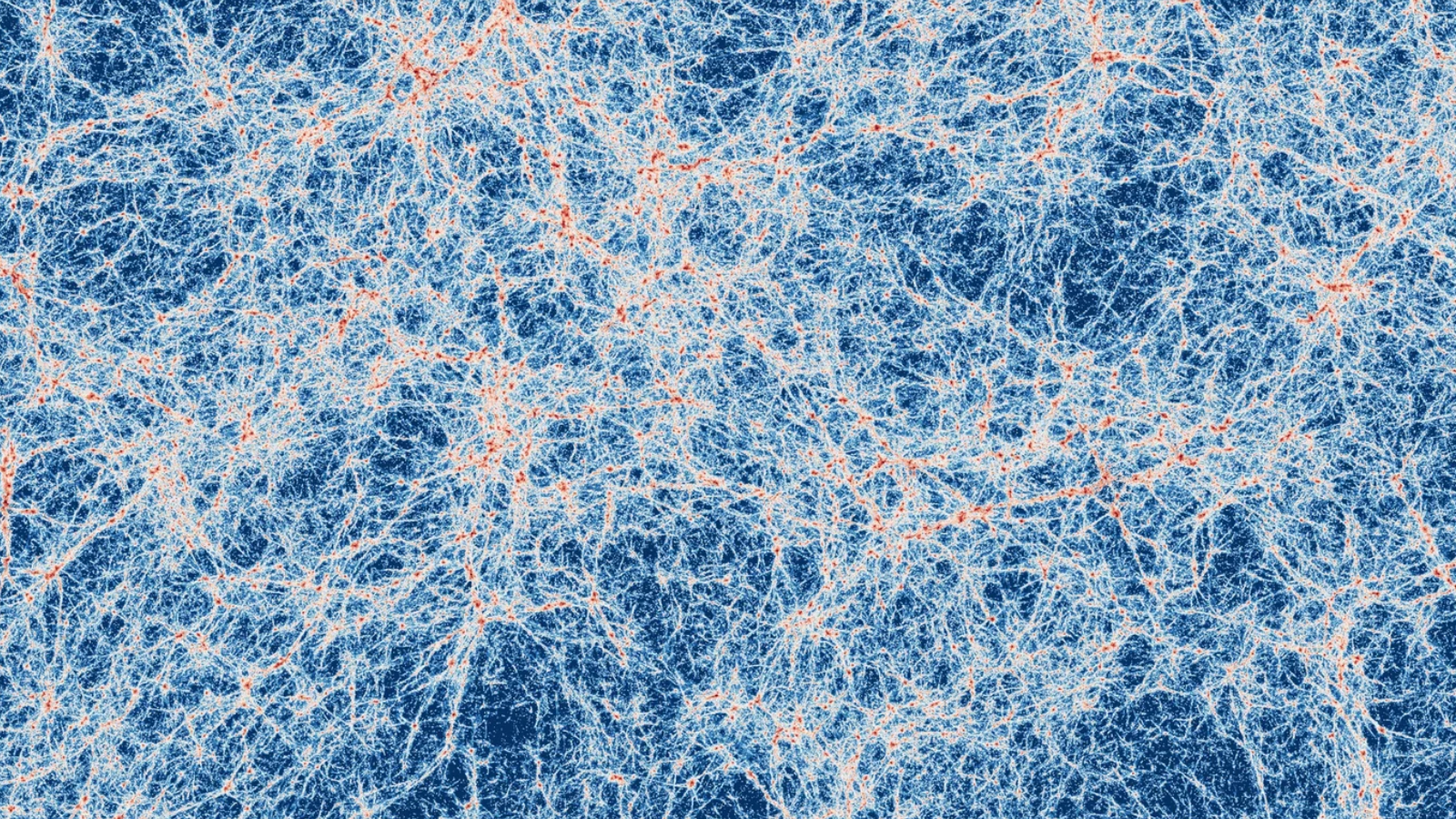Astronomers Argue Pluto is a Planet
Breaking space news, the latest updates on rocket launches, skywatching events and more!
You are now subscribed
Your newsletter sign-up was successful
Want to add more newsletters?

Delivered daily
Daily Newsletter
Breaking space news, the latest updates on rocket launches, skywatching events and more!

Once a month
Watch This Space
Sign up to our monthly entertainment newsletter to keep up with all our coverage of the latest sci-fi and space movies, tv shows, games and books.

Once a week
Night Sky This Week
Discover this week's must-see night sky events, moon phases, and stunning astrophotos. Sign up for our skywatching newsletter and explore the universe with us!

Twice a month
Strange New Words
Space.com's Sci-Fi Reader's Club. Read a sci-fi short story every month and join a virtual community of fellow science fiction fans!
Disgruntled scientists renewed their vows this week to call Pluto a planet despite an international governing body's latest ruling to reclassify the tiny world.
On Wednesday, the International Astronomical Union (IAU) declared that Pluto will henceforth be known as a "plutoid," a new class of objects that has two members (the other being Eris, a small body beyond Pluto). The IAU, considered in charge of naming celestial objects, has been around since 1919. It demoted Pluto to "dwarf planet" status in 2006.
The latest decision was announced by email to the press, and it took researchers by surprise. Even IAU members and astronomers who discovered Eris and other objects that might eventually be called plutoids were not consulted or informed.
That's left many scientists peeved that the IAU developed the new term and its definition behind closed doors. They accuse the IAU of being secretive, out of touch and of failing to consider basic physical characteristics that researchers use to define planets.
"The derision for this group [the IAU] is now spreading virally," said Alan Stern, former assistant administrator for the Science Mission Directorate at NASA and lead investigator for the New Horizons mission to Pluto.
Stern has also hinted that a rival group to the IAU might be formed. When asked about this possibility, he said: "There is a disturbance in the force. Enough said."
Many astronomers support the IAU or have no strong opinion on the matter. But Stern and others are increasingly dismissing the IAU's authority.
Breaking space news, the latest updates on rocket launches, skywatching events and more!
"The IAU is embracing a 19th-century world view, back before we had spacecraft, landers, orbiting telescopes and other modern means of understanding the physical characteristics of objects," said Mark V. Sykes, director of the Planetary Science Institute in Tucson.
"I see no reason to wait for the IAU to adopt the broader perspective of planetary scientists (who are mostly geophysicists and not astronomers)," Sykes told SPACE.com today. "People simply continue to use an alternative system in their discussions and [scientific] papers.
Sykes said questions about the IAU definition presume that the IAU defines things for everyone. "That may be convenient for some, but does not reflect reality," he said.
At least they are round
Everyone agrees that a planet has to at least be round. Beyond that, there are many bones of contention.
The new IAU definition of plutoid: "Plutoids are celestial bodies in orbit around the sun at a distance greater than that of Neptune that have sufficient mass for their self-gravity to overcome rigid body forces so that they assume a hydrostatic equilibrium (near-spherical) shape, and that have not cleared the neighborhood around their orbit."
Sykes and some other astronomers prefer to consider planets based on "shared physical characteristics." He says the geophysical definition for a planet is this: "A planet is a round object (in hydrostatic equilibrium) that orbits a star." He notes that objects large enough to make themselves round tend to have signs of geology (volcanism, tectonics and atmospheres) that don't exist on smaller objects.
This week's IAU decision was meant to further clarify a controversial 2006 decision that stripped Pluto of its planethood and redefined it as a "dwarf planet" and not a real planet. That attempt at defining the word "planet" was confined to our solar system and said nothing about planets around other stars.
"It's hard to find anyone who thinks this is (i) necessary, (ii) a step forward, or even (iii) useful," Stern said in an email interview. And of the new plutoid ruling: "About all it has accomplished is to convert some people who were on the fence to agreeing with those of us that planet definition needs a rethink" and that the process needs to be "out in the open."
The whole fiasco is now a two-part question: What is the definition of a planet? And is the IAU relevant as a governing body?
The IAU defense
IAU President Catherine Cesarsky defended the group's actions.
She said the 2006 "dwarf planet" ruling, approved at a meeting in Prague, included this clause: "An IAU process will be established to select a name for this category," meaning that it was always the IAU's intent to further define "dwarf planet" in relation to Pluto.
(Critics at the time complained that only 424 astronomers were present to vote on the Prague ruling. One observer at the time said it immediately created a rift in the science community. See an interview with Cesarsky on that topic.)
"We put the question to Division III and the naming committees a few months after Prague," Cesarsky said in an email interview this week. "It took some time for the committees to do their work. We had their proposal in hand many months ago, but this is business for the IAU Executive Committee, which meets only once a year. The Executive Committee just met in Oslo, and approved the proposal by Division III and the naming committees. This is normal IAU procedure."
Cesarsky said, "you can never satisfy 100 percent of the membership" in a democratic organization like the IAU. "I don't know whether they were expecting it," she said, "but we had pledged to do this in Prague, and we did it."
Stern complains, however, that the IAU's 10,000 members are not well represented.
"About 10 (0.1%) get quietly appointed to some committee, make a decision, send it to the Executive Committee (another dozen or so), and then the IAU reports this to the world as astronomical consensus!" Stern said. "It's a closed process that does not represent the members or, frankly, the IAU, very well."
Astronomers behaving badly
Steve Maran, a retired NASA astronomer and author of "Astronomy for Dummies," favors reinstating Pluto as a planet but has taken a somewhat moderate stance on the debate.
"I think there is a strong sentiment among a modest number of astronomers and a great many laypersons that Pluto should be reinstated or that the IAU action on Pluto should be ignored," Maran said.
He faults the IAU's 2006 planet definition as being confined to our solar system and excluding all extrasolar planets, among other problems.
There is "strong sentiment among a large number of astronomers" that the IAU definition is "useless for scientific purposes" said Maran, who is co-authoring "Astronomers Behaving Badly," slated for publication in 2010. In that book, Maran will make the case for Pluto as a planet, while co-author Larry Marschall sides with the IAU.
Nonetheless, Maran said this week's IAU decision "makes perfect sense, but rather than believing that this makes reinstating Pluto as a planet less likely, I consider that it makes it perfectly reasonable." The way he sees it, "'plutoids' can mean 'objects like the planet Pluto' whether that is the intention of the experts who proposed this terminology or not."
Hundreds of planets
Other researchers have predicted there will be hundreds of Pluto-like objects found as technology improves. That’s one reason some have argued for demoting Pluto. Maran sees no problem with hundreds of planets, however. They could simply be called "planets of the plutoid class."
Some astronomers have said the whole debate is meaningless and that "planet" will never be defined. Others disagree strongly.
"It is crucial that planetary scientists be able to classify their subject matter," Stern said. "Imagine if astrophysicists could not agree on what a star is?"
Scientists will take the whole debate up at a meeting Aug. 14-16 at Johns Hopkins University Applied Physics Laboratory. There, meeting co-organizer Hal Weaver said nobody will vote, but researchers will "address this question in terms of a scientific conference."
Advocates of both sides of the "is Pluto a planet?" debate are expected to attend.

Rob has been producing internet content since the mid-1990s. He was a writer, editor and Director of Site Operations at Space.com starting in 1999. He served as Managing Editor of LiveScience since its launch in 2004. He then oversaw news operations for the Space.com's then-parent company TechMediaNetwork's growing suite of technology, science and business news sites. Prior to joining the company, Rob was an editor at The Star-Ledger in New Jersey. He has a journalism degree from Humboldt State University in California, is an author and also writes for Medium.
